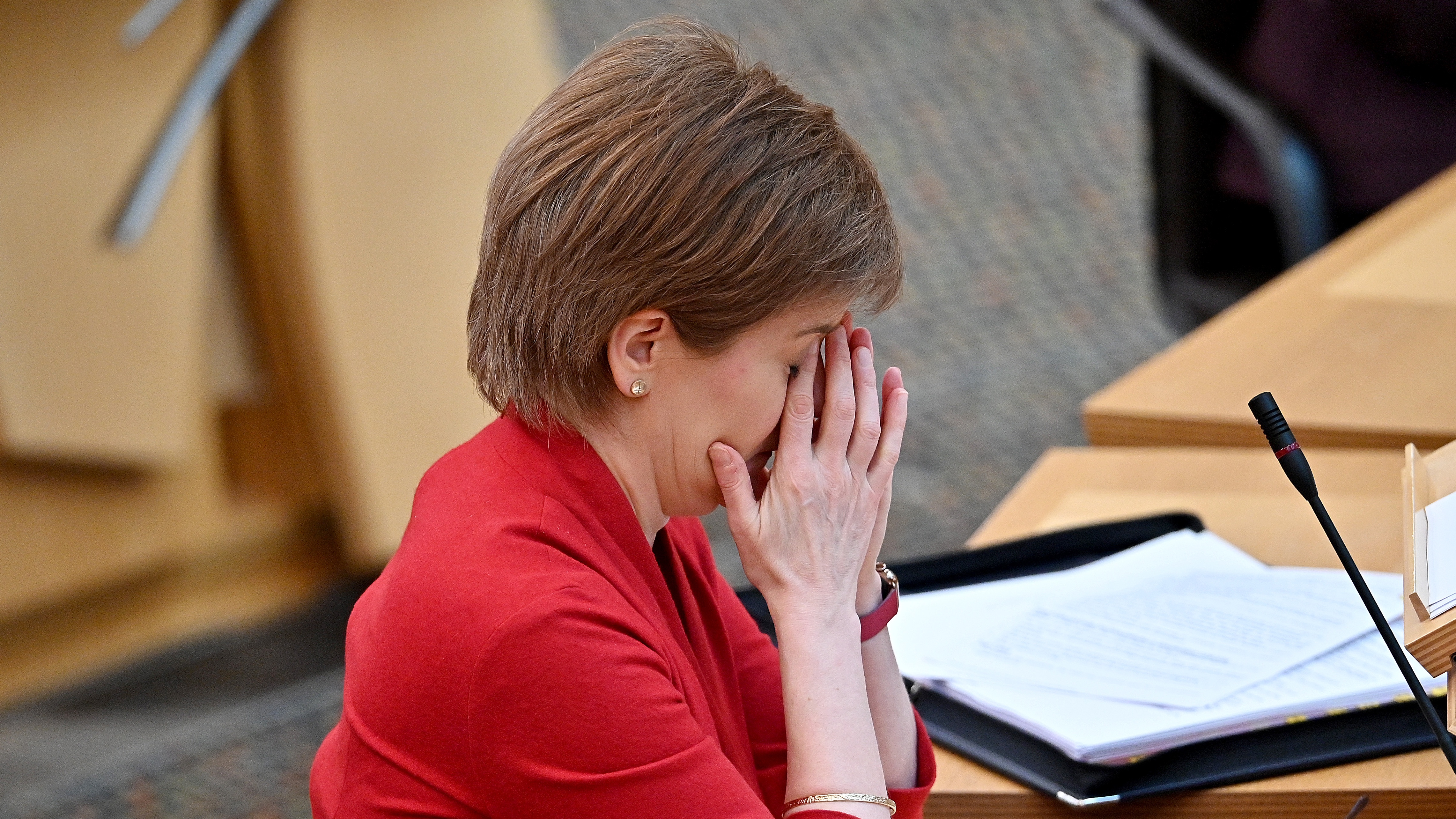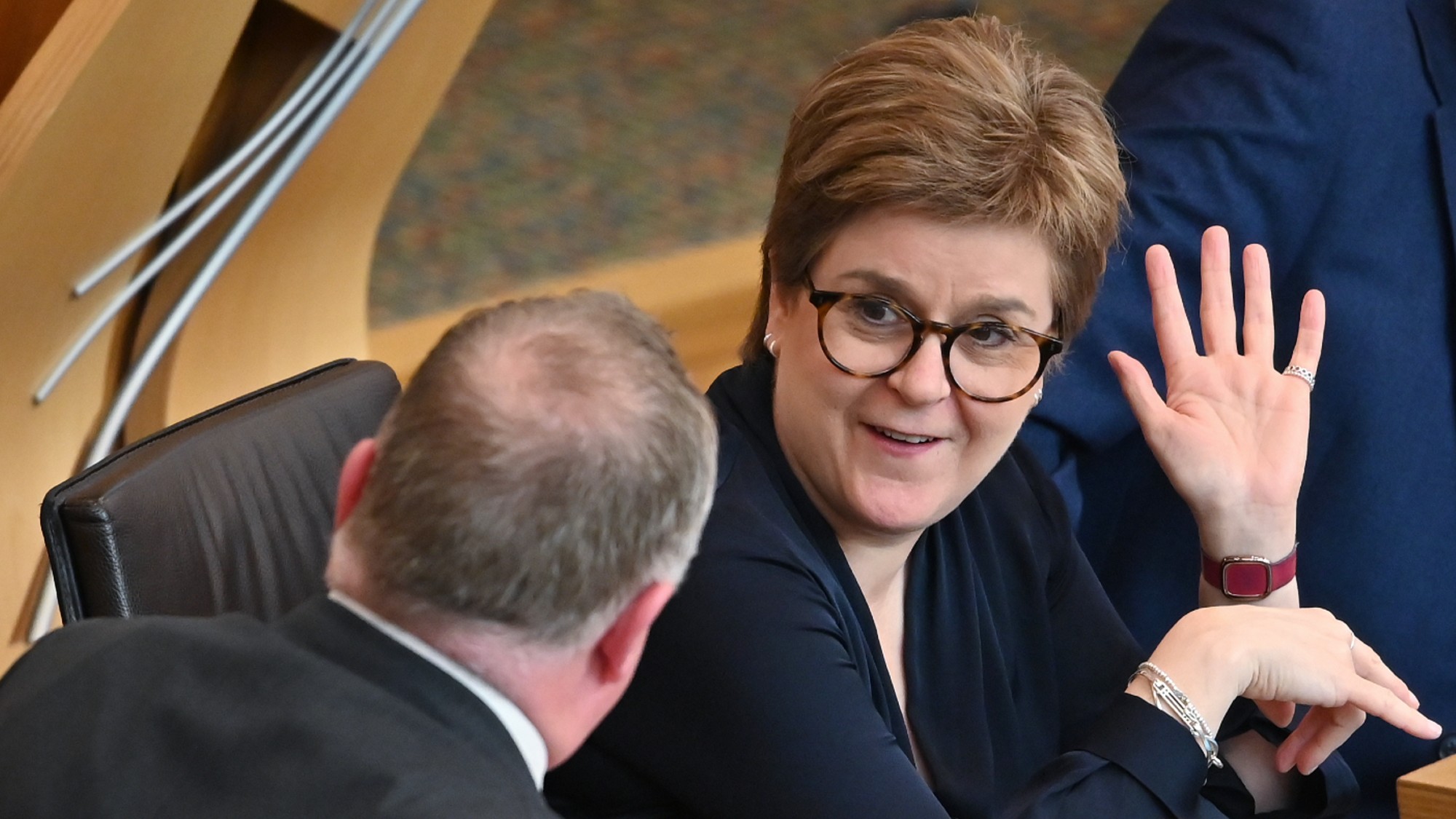Tory MP uses parliamentary privilege to reveal whistle-blower claims about Salmond inquiry
Nicola Sturgeon’s government accused of withholding information from Holyrood probe

A free daily email with the biggest news stories of the day – and the best features from TheWeek.com
You are now subscribed
Your newsletter sign-up was successful
Former Brexit secretary David Davis has told the Commons that Scottish National Party (SNP) officials made a “concerted effort” to “encourage” allegations of sexual abuse against Alex Salmond.
The Conservative MP used parliamentary privilege to reveal messages from SNP staffers who allegedly pushed for Salmond’s accusers to come forward. Davis also accused the Scottish government of “actively withholding information” from the Holyrood inquiry into the handling of the complaints against the former first minister.
The Tory told fellow MPs yesterday that a whistle-blower had handed him a “download of text messages from the telephone” of the SNP’s chief operating officer, Sue Ruddick, that reveal “a very strong prima facie case” for Salmond’s claim that party officials conspired to remove him from public life.
The Week
Escape your echo chamber. Get the facts behind the news, plus analysis from multiple perspectives.

Sign up for The Week's Free Newsletters
From our morning news briefing to a weekly Good News Newsletter, get the best of The Week delivered directly to your inbox.
From our morning news briefing to a weekly Good News Newsletter, get the best of The Week delivered directly to your inbox.
“The whistle-blower clearly agrees with those charges,” said Davis, who argued that Holyrood needs to be given the same “powers and privileges” afforded to Westminster politicians, to enable a proper investigation into Salmond’s counter-allegations.
In a further blow to Nicola Sturgeon, David “also claimed that the messages he received showed that the first minister’s chief of staff knew about the allegations against Mr Salmond months before originally asserted”, The Scotsman reports.
“I have it on good authority that there exists from the 6 February 2018 an exchange of messages between civil servants Judith McKinnon and Barbara Alison, suggesting the first minister’s chief of staff is interfering in the complaints process against Alex Salmond,” Davis told the Commons.
“If true, this suggests the chief of staff had knowledge of the Salmond case in February, not in April, as she has claimed on oath.”
A free daily email with the biggest news stories of the day – and the best features from TheWeek.com
Seizing on this claim, Scottish Conservative leader Douglas Ross later said that the signs pointed to “an outrageous breach” of the “privacy and confidentiality” of the women who brought the harassment complaints.
Davis’s intervention came as the QC tasked with examining the Scottish government’s procedures published “a range of recommendations about how complaints against serving ministers could be investigated”, the BBC reports.
In a review that comes ahead of “two other keenly anticipated reports relating to the bungled civil action” against Salmond, Laura Dunlop suggested that “probes concerning former ministers should be independent”, the broadcaster continues.
Meanwhile, a spokesperson for Sturgeon brushed off Davis’s allegations, saying that “as with Mr Salmond’s previous claims and cherry-picking of messages, the reality is very different to the picture being presented”.
“Every message involving SNP staff has been seen by the committee previously. Their views have been widely reported as dismissive of them,” the spokesperson added.
Joe Evans is the world news editor at TheWeek.co.uk. He joined the team in 2019 and held roles including deputy news editor and acting news editor before moving into his current position in early 2021. He is a regular panellist on The Week Unwrapped podcast, discussing politics and foreign affairs.
Before joining The Week, he worked as a freelance journalist covering the UK and Ireland for German newspapers and magazines. A series of features on Brexit and the Irish border got him nominated for the Hostwriter Prize in 2019. Prior to settling down in London, he lived and worked in Cambodia, where he ran communications for a non-governmental organisation and worked as a journalist covering Southeast Asia. He has a master’s degree in journalism from City, University of London, and before that studied English Literature at the University of Manchester.
-
 The 8 best TV shows of the 1960s
The 8 best TV shows of the 1960sThe standout shows of this decade take viewers from outer space to the Wild West
-
 Microdramas are booming
Microdramas are boomingUnder the radar Scroll to watch a whole movie
-
 The Olympic timekeepers keeping the Games on track
The Olympic timekeepers keeping the Games on trackUnder the Radar Swiss watchmaking giant Omega has been at the finish line of every Olympic Games for nearly 100 years
-
 How corrupt is the UK?
How corrupt is the UK?The Explainer Decline in standards ‘risks becoming a defining feature of our political culture’ as Britain falls to lowest ever score on global index
-
 The high street: Britain’s next political battleground?
The high street: Britain’s next political battleground?In the Spotlight Mass closure of shops and influx of organised crime are fuelling voter anger, and offer an opening for Reform UK
-
 Is a Reform-Tory pact becoming more likely?
Is a Reform-Tory pact becoming more likely?Today’s Big Question Nigel Farage’s party is ahead in the polls but still falls well short of a Commons majority, while Conservatives are still losing MPs to Reform
-
 Taking the low road: why the SNP is still standing strong
Taking the low road: why the SNP is still standing strongTalking Point Party is on track for a fifth consecutive victory in May’s Holyrood election, despite controversies and plummeting support
-
 Nicola Sturgeon's memoir: making the personal political
Nicola Sturgeon's memoir: making the personal politicalTalking Point Former Scottish first minister attempts to set record straight in 'Frankly' but does she leave more questions than answers?
-
 What difference will the 'historic' UK-Germany treaty make?
What difference will the 'historic' UK-Germany treaty make?Today's Big Question Europe's two biggest economies sign first treaty since WWII, underscoring 'triangle alliance' with France amid growing Russian threat and US distance
-
 Is the G7 still relevant?
Is the G7 still relevant?Talking Point Donald Trump's early departure cast a shadow over this week's meeting of the world's major democracies
-
 Angela Rayner: Labour's next leader?
Angela Rayner: Labour's next leader?Today's Big Question A leaked memo has sparked speculation that the deputy PM is positioning herself as the left-of-centre alternative to Keir Starmer